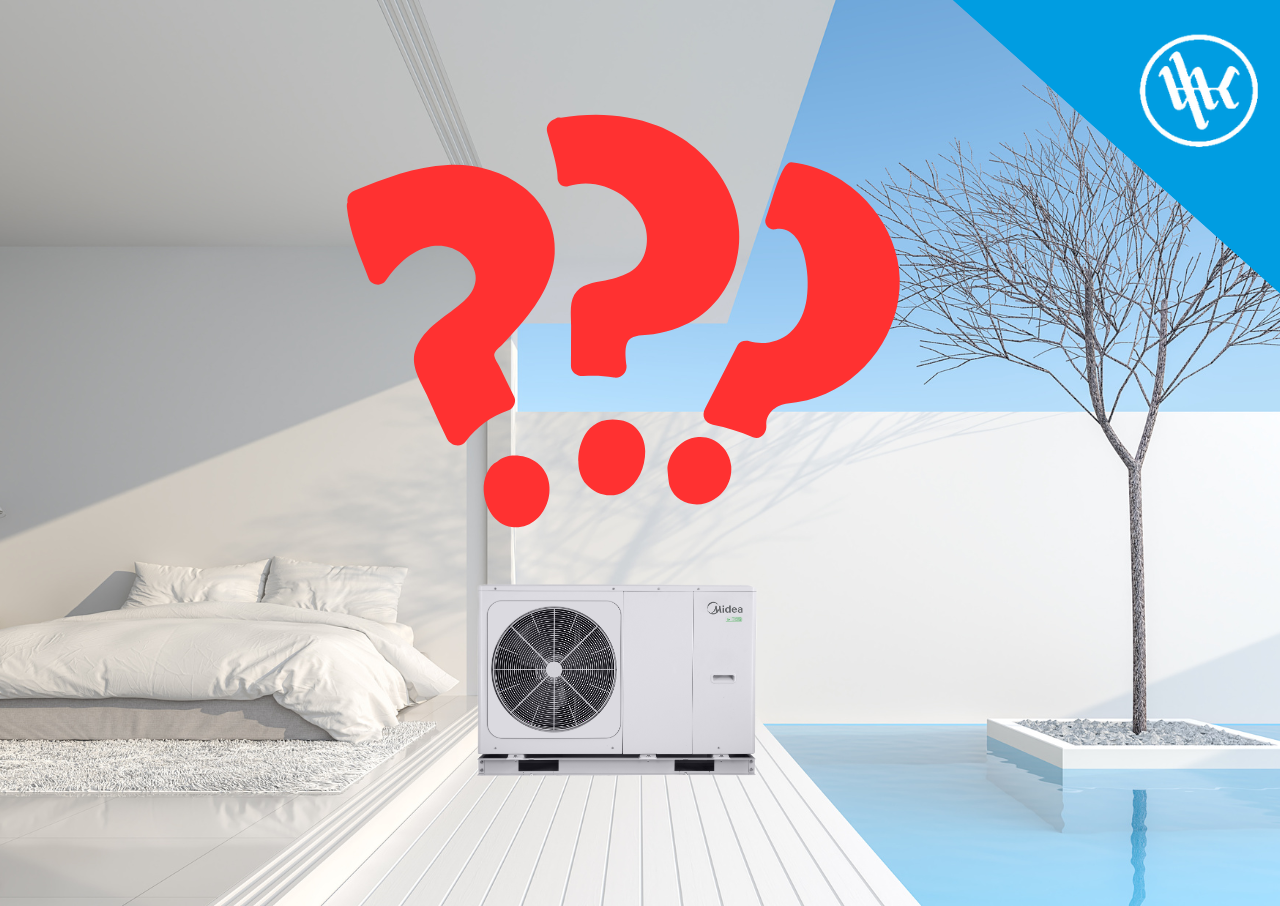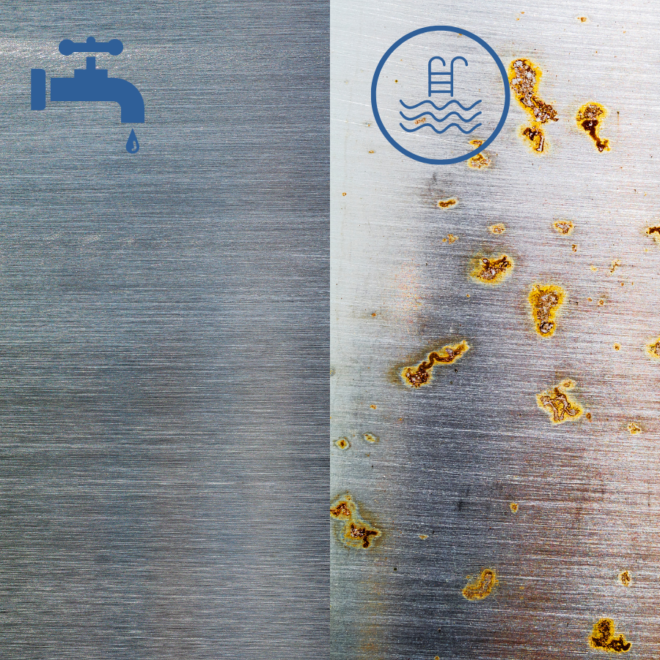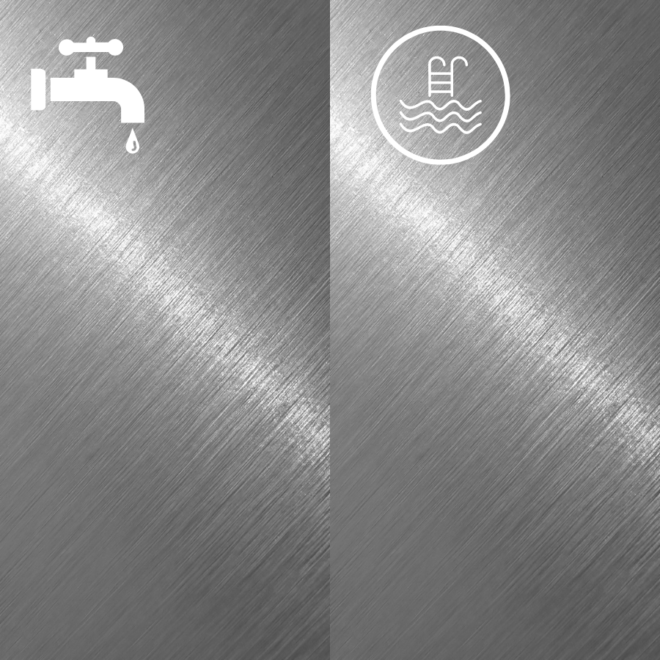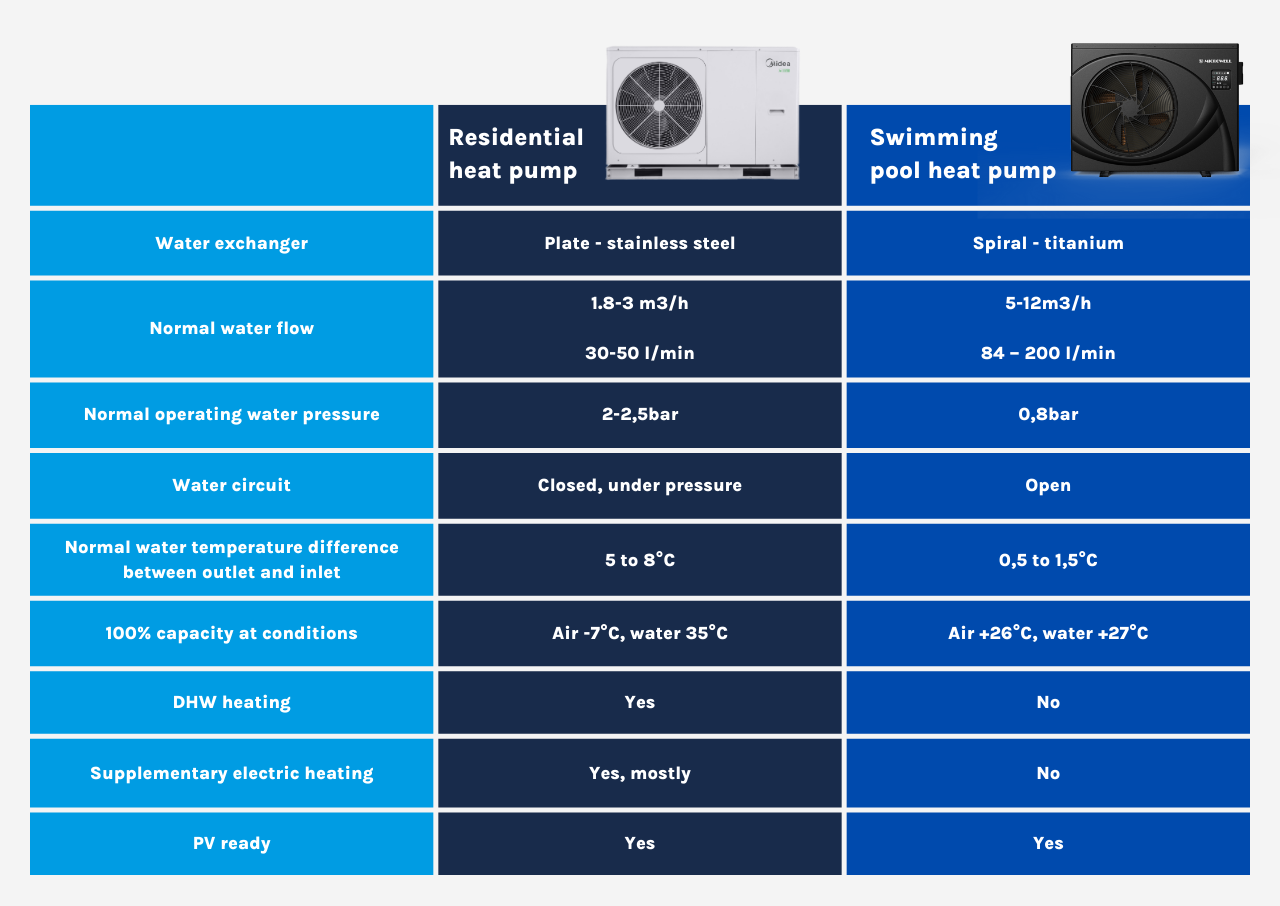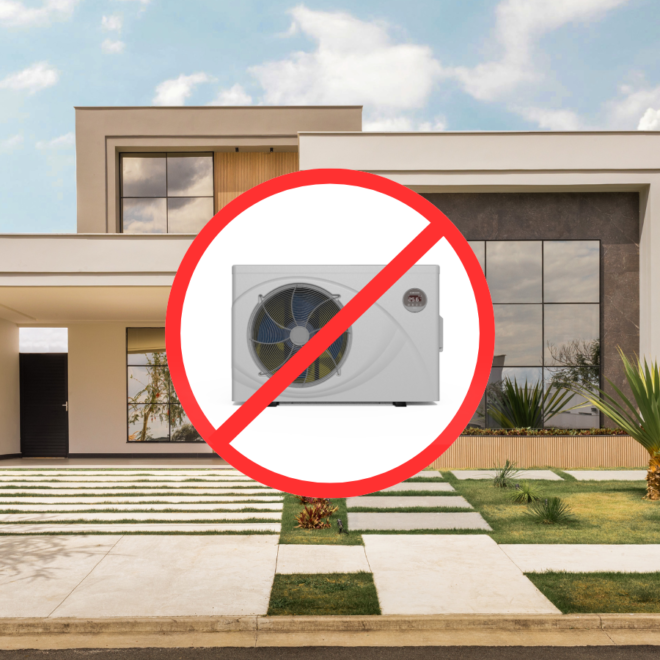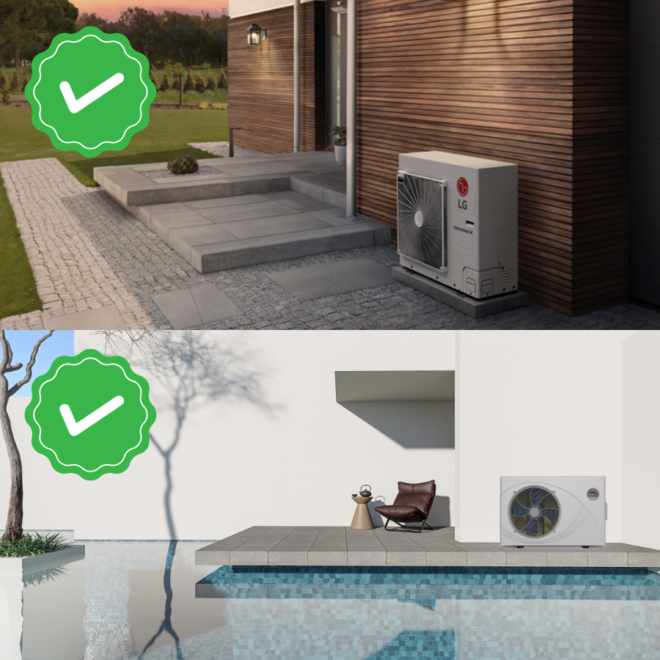A heat pump, as a source of heat, whether for a family house, a company building or a swimming pool, is the cheapest and most available heating all year round in a suitable climate. Heat pumps are strongly supported and often subsidized in many countries and their number is continuously increasing. The European Heat Pump Association (EHPA) estimates the number of heat pumps currently in operation in Europe at 20 million. With around 3 million added in 2022 alone. This is in line with the REPowerEU 2030 strategy. The European Union is targeting 60 million heat pumps installed by 2030, which would mean an annual growth rate of almost 15%. Whether the strategy will be fulfilled or partially fulfilled, we do not know at this point, but we often come across the question of whether a residential heat pump is suitable for heating pool water.
Our recommendation is clear and that is to use residential heat pump (a so-called "domestic heat pump") for a house (building, company, hotel...) and use a pool heat pump for a swimming pool. And not to combine the systems.
A domestic heat pump or heat pump "for space heating" is a heat pump that is primarily intended for heating buildings (houses, companies, hotels, etc.) in the form of most commonly underfloor heating. On the other hand, a pool heat pump is a special type of heat pump designed exclusively for heating the water of swimming pools, hot tubs, and water attractions. Both of these heat pumps work on the same principle and often look very much alike, but on the inside they are different in many ways.
Both heat pumps work to exchange heat from air to water for heating and from water to air for cooling. To do this, they use the elementary behavioral characteristics of gases; when pressed you heat them up, on the contrary, whenreleased (evaporated), you cool them down.


